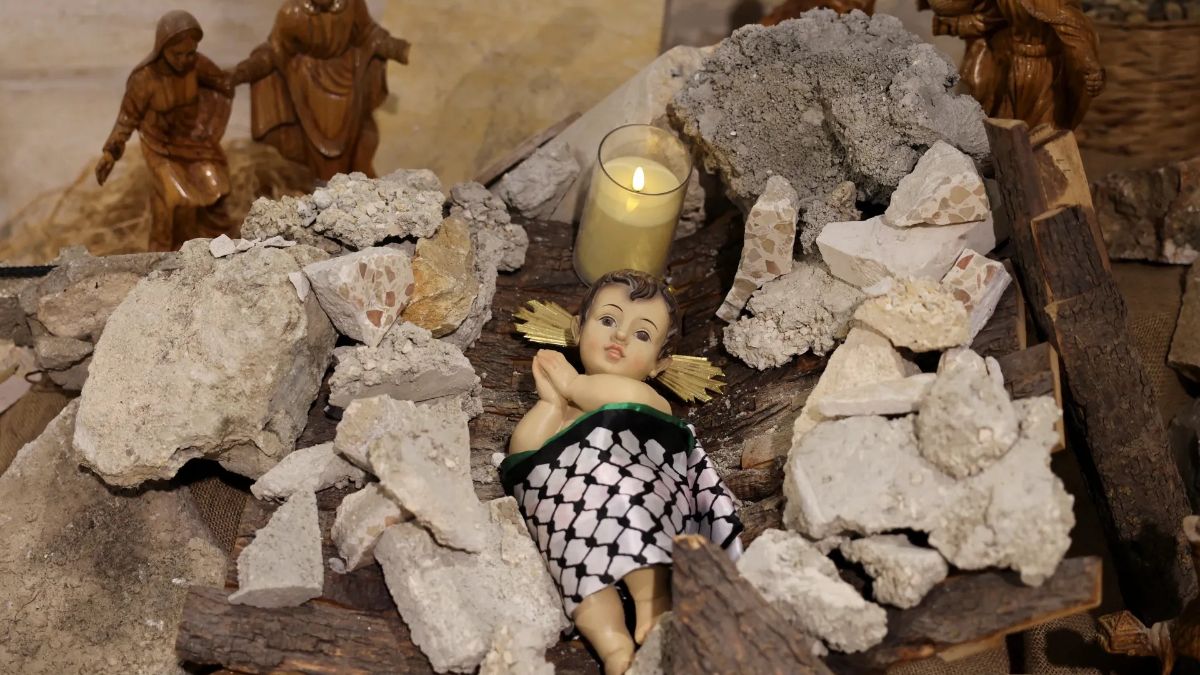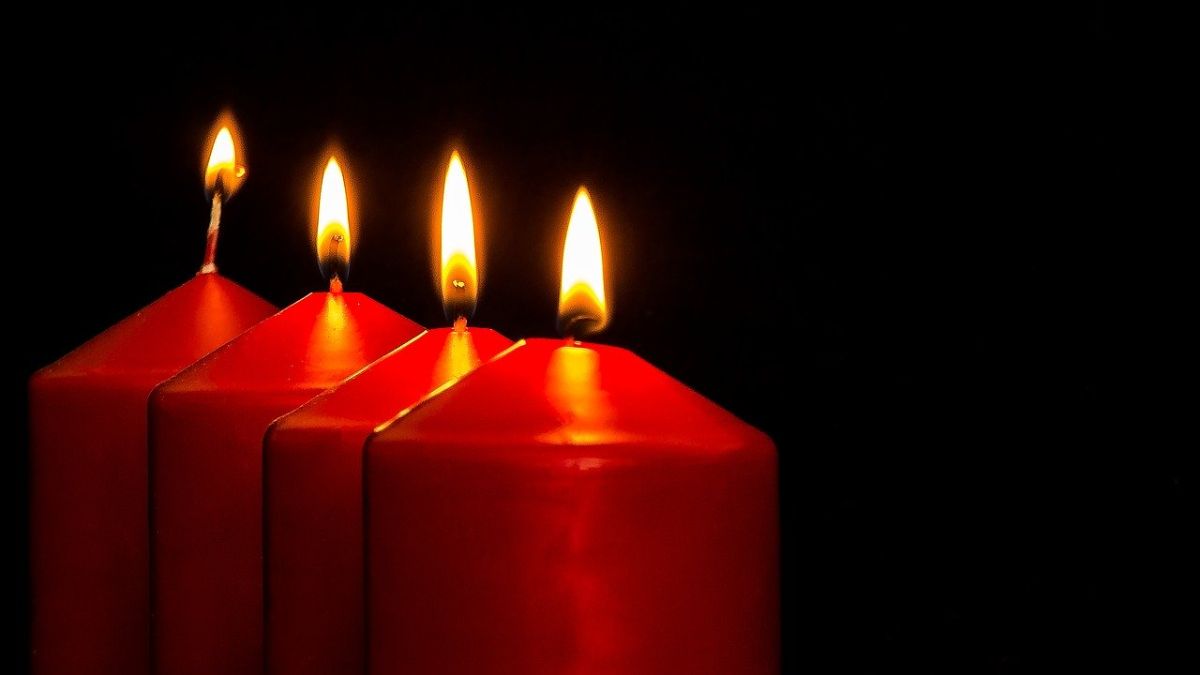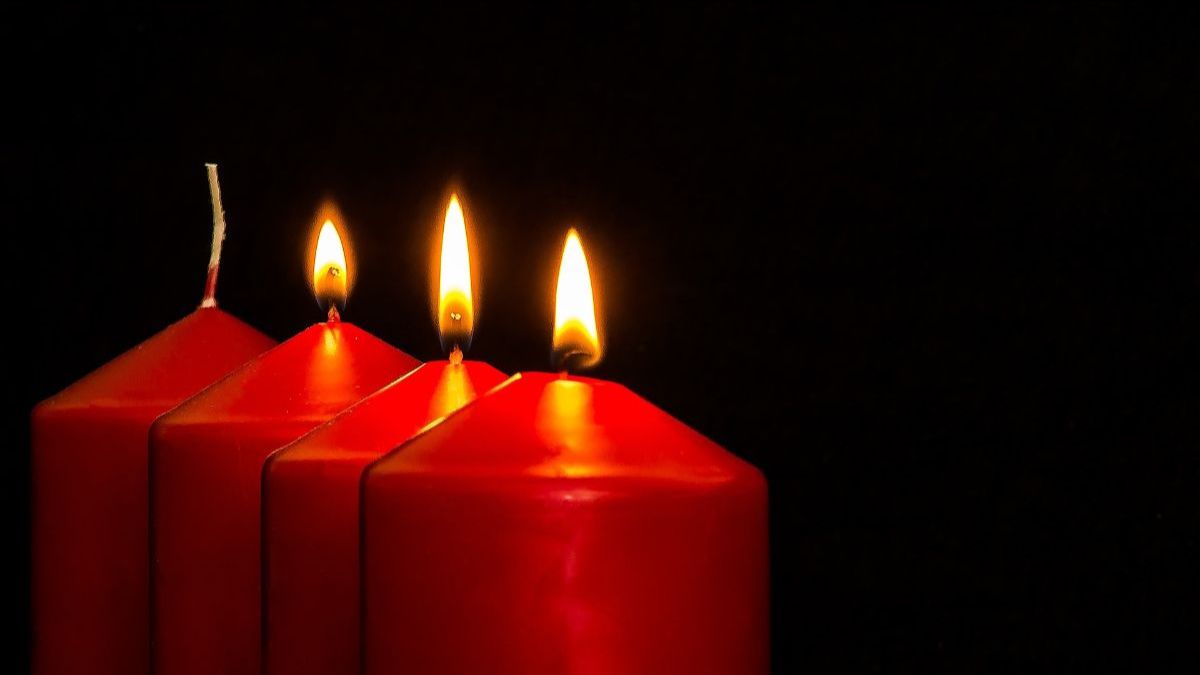Holy Saturday: “As Secure as You Know How”
"Take a guard," Pilate answered, "Go, make the tomb as secure as you know how."
27:57-66
April 4, 2015, Words By: Joel Van Dyke, Image By: Lamentation, or the Mourning of Christ (1304-06) by Giotto
“Something strange is happening – there is a great silence on earth today, a great silence and stillness. The whole earth keeps silence because the King is asleep. The earth trembled and is still because God has fallen asleep in the flesh, and he has raised up all who have slept ever since the world began. God has died in the flesh and hell trembles with fear. He has gone to search for our first parent, as for a lost sheep. Greatly desiring to visit those who live in darkness and in the shadow of death, he has gone to free from sorrow the captives.” (From “An Ancient Homily for Holy Saturday” written by an anonymous author in the Liturgy of the Hours.)
Our journey through Lent has almost culminated. We find ourselves this morning in a black hole of silence. We are in the in-between day. The church has no official liturgy in Holy Week for Saturday. If a church body celebrates Holy Saturday at all, it is traditionally simply a day of somber reflection.
On Holy Saturday we enter into the mystery. Today we contemplate Jesus, there in the tomb, dead – exactly the way each of us will be one day, dead. We don’t easily contemplate dying, but we rarely contemplate actually being dead. What is important is that we keep this day holy, and let our “sense” of the mystery of death shape our reflection as it drips into our longing to celebrate the Easter gift of Jesus alive, for us and with us.
Yesterday Jesus was crucified, dashing to bits the dreams and aspirations of all those who had thought he had come as the promised Messiah to overthrow the yoke of suffering and pain. We await tomorrow’s ultimate victory with anticipation – but that is tomorrow’s story. Our present reality is Saturday.
Alan E. Lewis paints a vivid picture of this tension in Between Cross and Resurrection: A Theology of Holy Saturday. He writes, “The second day appears to be a no-man’s-land, an anonymous, counterfeit moment in the gospel story, which can boast no identity for itself, claim no meaning and reflect only what light it can borrow from its predecessor and its sequel.”
The central drama in the Gospel narrative spans just three days – the hinge of salvation history. The first day portrays what humanity did to Jesus and the third what God did for humanity in the resurrection, but the center of the three-day drama is an empty space. The irony of this is that scripture all but completely ignores the middle day of the three. Matthew is the only one of the Gospel writers who says anything about what happens on Saturday, and that comes in a span of just five quick verses (Matthew 27:62-66).
We read here that the silence of Saturday – the day after – is haunting the chief priests and Pharisees. They come knocking on Pilate’s door in great fear of the power of the “Great Deceiver” to win over followers even in death. They express great concern that the “last deception could be even worse than the first.” Pilate bends once gain to their wishes. He assigns them a guard detachment and the power of royal seal to go and “make the tomb as secure as know how.”
As I spent some time with Lectio Divina in this passage, I was blind-sided by the words of Pilate. How often I find myself living like the Pharisees, not able to rest in the holy silence of Saturday, not allowing it to simply be what it is. The silence haunts me and I find myself needing to make some noise. There are doors to knock on and things to secure. I need to do something, anything to help, to protect, to secure. Sitting in silence is a blind acceptance of impotence in the face of circumstance, and that is simply not permissible. I must take a guard and go make things as secure as I know how.
However, in light of Sunday’s promise of hope, the actions of the Pharisees on Saturday were an act of utter futility. The best that they knew how was no match for the Divine, transformative power of resurrection. Oh how I wish I could learn to lean into the silence of today! In so doing, I might actually celebrate my personal impotence in the face of circumstance. I must, we must – and the Gospel demands that we do.
“Are you unaware that we who were baptized into Christ Jesus were baptized into his death? We were indeed buried with him through baptism into death, so that, just as Christ was raised from the dead by the glory of the Father, we too might live in newness of life. For if we have grown into union with him through a death like his, we shall also be united with him in the resurrection” (Romans 6:3-11).
Until tomorrow,
Joel Van Dyke
Street Psalms



